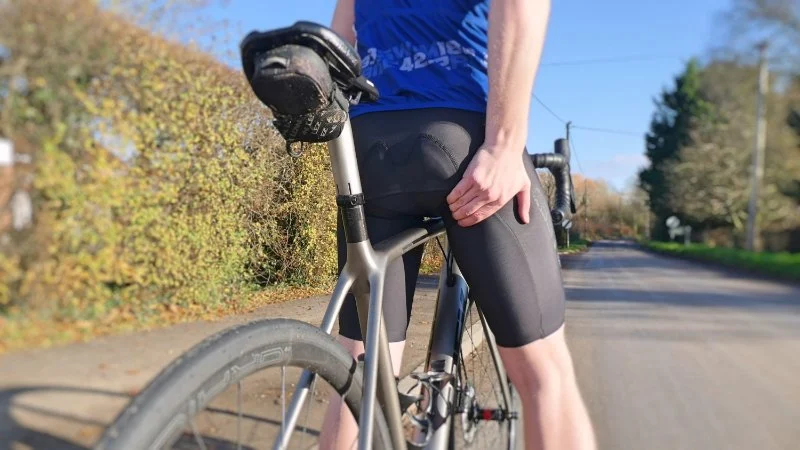
- 1 - What Are Saddle Sores and Why They Happen
- 2 - How to Deal With Saddle Sores Effectively
- 3 - Prevention Techniques Every Cyclist Should Know
- 4 - Real Stories and Experiences From Cyclists
- 5 - Expert Tips and Professional Recommendations
1 - What Are Saddle Sores and Why They Happen
Saddle sores are painful skin irritations that commonly affect cyclists, caused by friction, pressure, and sweat accumulation in the areas where the body meets the bike saddle. They may appear as chafing, small bumps, or even infected folliculitis if untreated. Understanding why they develop is essential before learning how to deal with saddle sores. Poorly fitted saddles, low-quality cycling shorts, or simply long hours on the bike can increase the risk of developing them.
For example, a new cyclist who increases their riding mileage too quickly may experience soreness due to both friction and lack of skin adaptation. Recognizing the causes early helps in applying proper remedies and preventing more serious problems.
2 - How to Deal With Saddle Sores Effectively
When it comes to learning how to deal with saddle sores, the first step is rest. Taking a short break from cycling allows the skin to heal naturally. Applying soothing creams, such as those with aloe vera or zinc oxide, helps reduce inflammation and discomfort. If the sore area looks infected or worsens, consulting a medical professional is recommended.
Another practical solution is maintaining proper hygiene after every ride. Showering immediately and changing into clean, breathable clothing prevents bacteria from worsening the irritation. Many experienced cyclists also swear by using high-quality chamois creams before long rides, which reduce friction and help keep the skin smooth. For the best gear and care products designed to help cyclists manage this issue, exploring Cycling Guider can provide valuable recommendations.
3 - Prevention Techniques Every Cyclist Should Know
Preventing saddle sores is often easier than treating them. Proper bike fit is one of the most critical factors; a saddle that is too high, too low, or not suited for your anatomy can create excessive pressure points. Investing in well-padded cycling shorts with a quality chamois also makes a significant difference. The fabric should wick away sweat and reduce skin irritation during long rides.
Another key tip is to vary your riding position. Standing up on the pedals every few minutes reduces pressure on sensitive areas. Riders should also gradually increase training intensity to allow the skin to adapt to longer rides. With these adjustments, many cyclists report a dramatic reduction in saddle sore problems over time.
4 - Real Stories and Experiences From Cyclists
Stories from the cycling community highlight how widespread this issue can be. During a famous endurance event, many riders shared their struggles with saddle sores on online forums, with some even withdrawing from the race due to the pain. One rider described how switching to a custom-fitted saddle and adopting a strict hygiene routine transformed their riding experience, allowing them to finish future events comfortably.
Another inspiring case comes from a daily commuter who cycled over 20 miles each day. At first, saddle sores made commuting miserable, but after upgrading to proper cycling shorts and using chamois cream, the problem nearly disappeared. These real-life examples show that solutions are accessible, and with the right knowledge, cyclists can overcome the challenge.
5 - Expert Tips and Professional Recommendations
Experts emphasize that treating saddle sores should always involve both immediate care and long-term prevention strategies. Dermatologists recommend soothing balms for recovery, while cycling coaches often highlight the importance of bike fitting and gear selection. Combining these approaches ensures both comfort and performance on the bike.
For cyclists serious about performance and health, investing in quality gear and personalized advice can make all the difference. Whether you are a beginner or an experienced rider, resources like Cycling Guider provide curated solutions that help you ride longer and more comfortably without the constant worry of saddle sores.







 Billet BMX5.0 (2 reviews)
Billet BMX5.0 (2 reviews) Far East Children Bicycle Factory1.0 (1 reviews)
Far East Children Bicycle Factory1.0 (1 reviews) Archer Motorsports, Inc.4.0 (8 reviews)
Archer Motorsports, Inc.4.0 (8 reviews) YEP Bike Works4.0 (55 reviews)
YEP Bike Works4.0 (55 reviews) Gorham Bike & Ski4.0 (498 reviews)
Gorham Bike & Ski4.0 (498 reviews) Alchemy Bikes4.0 (37 reviews)
Alchemy Bikes4.0 (37 reviews) How to Teach Kids to Ride a Bike: A Step-by-Step Guide for Parents
How to Teach Kids to Ride a Bike: A Step-by-Step Guide for Parents Tips for Riding on Busy City Streets: Smart Strategies for Urban Cyclists
Tips for Riding on Busy City Streets: Smart Strategies for Urban Cyclists Best US National Parks for Mountain Biking: Ride Epic Trails Across America
Best US National Parks for Mountain Biking: Ride Epic Trails Across America Best Aero Helmets for Time Trials and Racing
Best Aero Helmets for Time Trials and Racing How to Clean and Lubricate Your Bike Chain Like a Pro
How to Clean and Lubricate Your Bike Chain Like a Pro 10 Must-Have Items for Long-Distance Cycling Trips
10 Must-Have Items for Long-Distance Cycling Trips